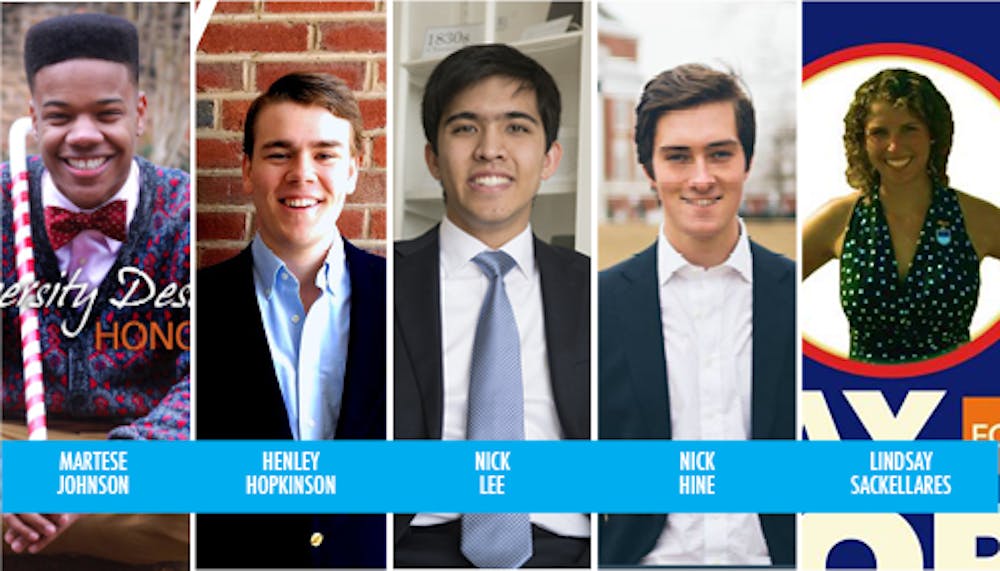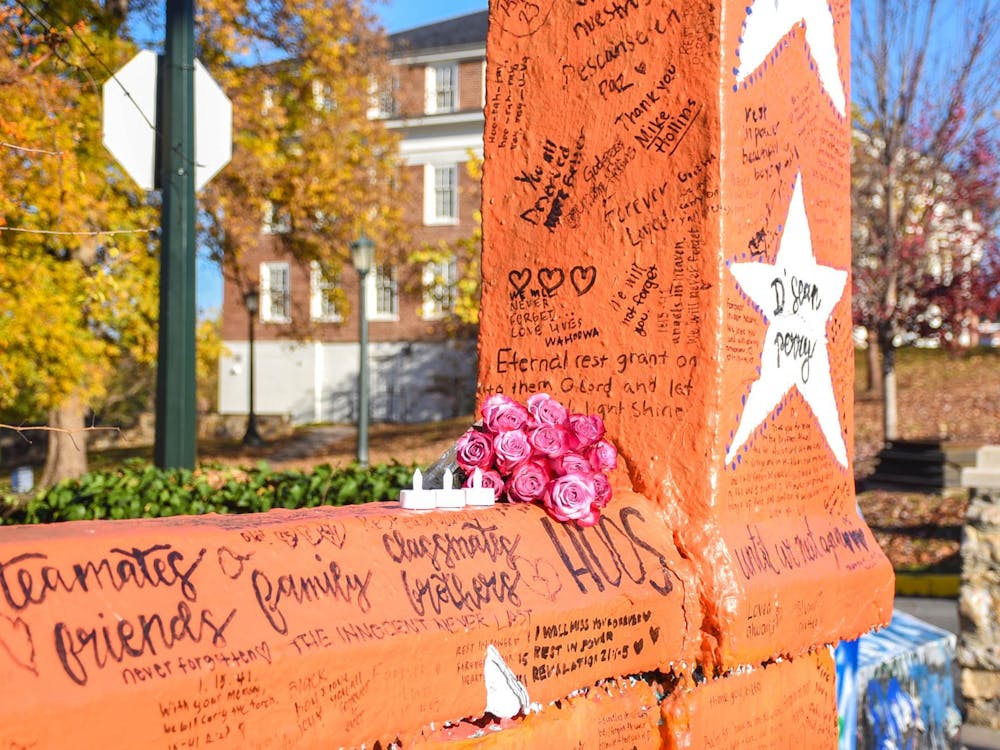Our decision of who to endorse for College Honor representatives was difficult. All eight candidates interviewed with us, and all eight seemed very enthusiastic about Honor. However, we can only choose five. As many of the candidates identified similar problems within the Honor system, we prioritized those who articulated feasible, concrete plans to address these problems. We also favored the candidates who connected most with a certain ideology — that Honor truly belongs to the student body, and that student buy-in is more important than any particular policy.
Martese Johnson impressed us with his dedication to diversity. Though he does not come in with Honor experience, he has taken the time and energy to become well-educated about the system, focusing on the issues of minority representation and an informed retraction policy that may disadvantage students of lower socioeconomic status. An active member of the Black Student Alliance, Johnson is committed to making Honor appeal to minority communities at the University. With his election, he hopes to inspire future minority students to participate in Honor and run to be representatives, so that the Committee can be more reflective of the student population as a whole.
Henley Hopkinson won us over with his commitment to soliciting proposals from the student body, rather than running a “vote yes” campaign, like last year’s Restore the Ideal Act. Hopkinson proposed a regular “Honor Congress” with students of all demographics and faculty to encourage them to identify the problems they see with Honor and to formulate their own solutions. Though Hopkinson supports the single sanction, he says that he cares more about the low reporting rates, and would be open to eliminating the single sanction if the student body feels that it is necessary.
Nick Lee introduced several unique ideas that made him stand out from the rest of the group. His proposals included a CIO liaison program, an essay competition with a cash prize and allowing the students to decide how to spend a certain portion of Honor’s budget. These three initiatives are meant to make the students feel more connected to Honor, and to stimulate discussion about how the Honor system can be improved.
Nick Hine’s experience and intimate knowledge of the Honor system convinced us to endorse him as well. Like other candidates, he identified the problems of “spotlighting” and “dimming” as they relate to disproportionate reporting, and proposed a thorough study to figure out why these disproportionate rates exist. Hine made a promise, if elected, to “hit the ground running,” starting right at the beginning of the term with new initiatives and taking full advantage of the entire year to accomplish as much as possible.
Lindsay Sackellares takes our final spot. She expressed a desire to reach out to international students — one of the three demographics that is reported for Honor offenses more frequently — to ensure that a lack of understanding does not make them feel targeted by the system. She also proposed, to address the issue of inadequately trained or apathetic student jurors, creating a large jury pool that would be trained and used consistently throughout the semester.
Meg Gould, Tim Swartz and Calvin McPhail-Snyder did not receive endorsements from us. Though Gould and Swartz both have extensive experience with Honor, we felt as though they were somewhat disconnected from the student body’s opinions, seeming to think that lack of student buy-in is caused by students’ misunderstanding of Honor, and not by the fundamental problems of the system itself. Though both candidates seemed very invested in the Honor system, their opponents’ visions for its improvement are more in accordance with the ideology of student ownership.
McPhail-Snyder is an Honor outsider, and while his fresh perspective and willingness to question the current the practices of the system could serve the Committee well, he struggled to formulate tangible, feasible solutions to the problems identified.
We feel that electing the five candidates we have selected for College Honor representatives gives Honor the best hope for progress and reconnecting with the student body. We believe in the ideals of Honor and want it to succeed, but Honor will lose relevance if it remains out of touch with the desires of the student body. Hopefully, the new Honor Committee will take their commitment to serving the University community seriously and make large strides toward becoming more transparent, diverse and receptive.







